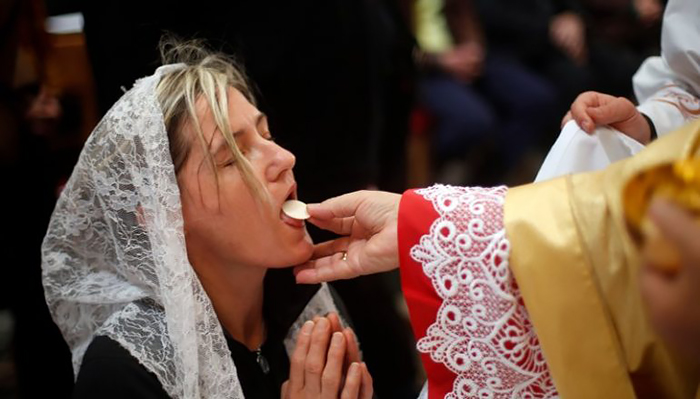
Skin needs to be touched! God knows that better than anyone. It’s why Jesus gave us the Eucharist. In the Eucharist, skin gets touched. The Eucharist isn’t abstract, a theological instruction, a creed, a moral precept, a philosophy, or even just an intimate word. It’s bodily, an embrace, a kiss, something shockingly physical, the real presence in a deeper way than even the old metaphysics imagined; for whatever reasons, we tend to shy away from admitting how radically physical the Eucharist actually is. St. Paul didn’t share that fear. For him, the physical communion that takes place in the Eucharist, between us and Christ as well as among ourselves, is as real and radical as sexual union. Our union with Christ and each other in the Body of Christ is intimate and real. Strong words. They’re predicated on a very earthy conception of the Eucharist. The late essayist and novelist Andre Dubus once wrote an extraordinary little apologia as to why he went to Eucharist regularly, despite the critical circles he moved in: “This morning I received the sacrament I still believe in: at seven-fifteen the priest elevated the host, then the chalice, and spoke the words of the ritual, and the bread became flesh, the wine became blood, and minutes later I placed on my tongue the taste of forgiveness and of love that affirmed, perhaps celebrated, my being alive, my being mortal. This has nothing to do with immortality, with eternity; I love the earth too much to contemplate a life apart from it, although I believe in that life. No, this has to do with mortality and the touch of flesh, and my belief in the sacrament of the Eucharist is simple: without touch, God is a monologue, an idea, a philosophy; he must touch and be touched, the tongue on flesh, and that touch is the result of the monologues, the idea, the philosophies which led to faith; but in the instant of the touch there is no place for thinking, for talking, the silent touch affirms all that and goes deeper: it affirms the mysteries of love and mortality.” Skin heals when touched. It’s why Jesus gave us the Eucharist.[1]
[1] Excerpt from Ron Rolheiser’s reflection, “The Eucharist as Touch”, October 2002.
